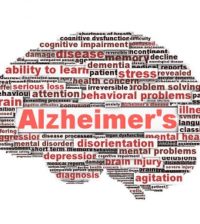- Planters Peanut Products Under Recall Due to Listeria Risk
- That ‘New Car Smell’ Could Be Toxic Carcinogens
- Gene Discovery Points to a New Form of Alzheimer’s
- Scientists May Have Located Your Brain’s ‘Neural Compass’
- Almost All Counterfeit Oxycontin Pills Contain Fentanyl
- A Parent’s Watchful Eye Does Keep Kids From Drugs, Alcohol: Study
- AI Might Boost Detection of A-Fib
- Drug May Help Folks Kick the Vaping Habit
- Small Pump May Let Kids Stay Home As They Await New Heart
- Gene Therapy Improves Vision in People With Inherited Blindness
Slow Reaction Times May Be Harbinger of Early Death


Adults with slow reaction times may have an increased risk of early death, a new study suggests.
British researchers looked at more than 5,000 Americans, aged 20 to 59, who had their reaction times measured using a simple test in which they had to press a button when they saw an image appear on a computer screen.
The participants were then followed for 15 years. During the follow-up period, 7.4 percent of the participants died. Those with slower reaction times were 25 percent more likely to die from any cause than those with average reaction times.
This remained true after the researchers accounted for age, sex, ethnicity, socioeconomic background and lifestyle factors, according to the study, which was published in the current issue of the journal PLoS One.
There was no link between reaction time and risk of death from cancer or lung problems. And the study showed only an association between slow reaction times and early death; it did not prove a cause-and-effect link.
“Reaction time is thought to reflect a basic aspect of the central nervous system, and speed of information processing is considered a basic [mental skill],” lead researcher Dr. Gareth Hagger-Johnson, of the department of epidemiology and public health at University College London, in the United Kingdom, said in a university news release. “Our research shows that a simple test of reaction time in adulthood can predict survival.”
“Reaction time may indicate how well our central nervous and other systems in the body are working,” Hagger-Johnson said. “People who are consistently slow to respond to new information may go on to experience problems that increase their risk of early death.”
“In the future, we may be able to use reaction times to monitor health and survival,” he said. “For now, a healthy lifestyle is the best thing people can do in order to live longer.”
More information
The U.S. Centers for Disease Control and Prevention offers healthy living tips.
Source: HealthDay
Copyright © 2024 HealthDay. All rights reserved.










